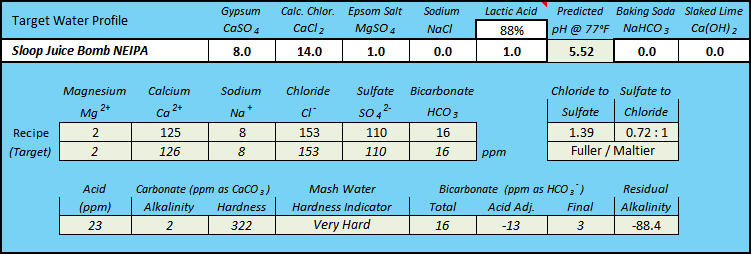mrodrigues9
Active Member
- Joined
- Jun 15, 2016
- Messages
- 35
- Reaction score
- 12
Using Bru'n Water and adjusting my water for the first time ever
shooting for
116ppm Calcium
75ppm Sulfate
150ppm Chloride
My additions are as follow
Gypsum 3.2g to mash and 1.2 to sparge
Calcium Chloride 5.5g to mash and 2.1 to sparge
Baking Soda .7g to mash only (this is only if needed to bring Mash PH up to 5.4
Does anything look out of line here?
shooting for
116ppm Calcium
75ppm Sulfate
150ppm Chloride
My additions are as follow
Gypsum 3.2g to mash and 1.2 to sparge
Calcium Chloride 5.5g to mash and 2.1 to sparge
Baking Soda .7g to mash only (this is only if needed to bring Mash PH up to 5.4
Does anything look out of line here?









![Craft A Brew - Safale S-04 Dry Yeast - Fermentis - English Ale Dry Yeast - For English and American Ales and Hard Apple Ciders - Ingredients for Home Brewing - Beer Making Supplies - [1 Pack]](https://m.media-amazon.com/images/I/41fVGNh6JfL._SL500_.jpg)
















































